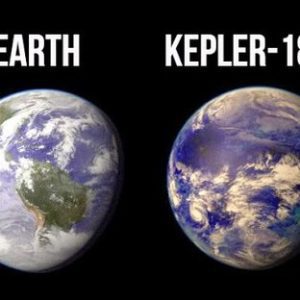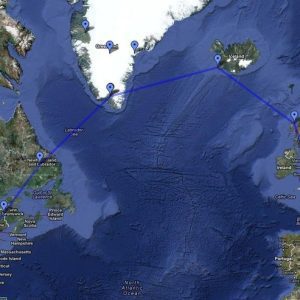The species Homo sapiens? It could and almost certainly would.
Bad news for everyone; minor hiccup for humanity as a whole:

The K-Pg impactor would have killed in the following ways:
*The physical impact would have annihilated everything within a thousand miles.
*Ejecta would have rained down globally – ie, in all areas, but not in most specitif locations, of course – killing directly and starting fires all over the planet.
*The global earthquake at magnitudes 11 and 12 would have been apocalyptic.
*A massive temperature drop due to all the debris (an estimated 25 trillion tons) sent into the atmosphere, blocking sunlight, worsened by smoke from the global fires.
*Years later, when most of the debris had settled back to the surface, the huge influx of carbon dioxide caused by the pulverization of trillions of tons of carbonate rocks, would have caused a global greenhouse effect and massive temperature spikes.
Genarally, a lot of bad news. But here’s the good news for Homo Sapiens. Remember, I am speaking of the species here, not individuals. There would be a whole lot of suck for everyone as a person but the species would endure, for several reasons.
First, there are more than eight billion of us. Kill off 99% and there are still ~80 million. Kill off 99% of them – ie, 99.99% of everyone in the first place – and there are still ~800,000 of us. Think that’s not so many? No, it’s a pretty good population for a random species of megafauna. For example, it’s about 7x the number of brown bears in the world, and they’re doing quite well as a species. Losing 9999 out of every 10000 people and still having a healty population gives one hell of a numerical buffer.
Second, we’d be aware of what’s happening and able to react accordingly. Isolated populations can go underground. There would be a technological collapse, but foods stores would allow survivors to get back on their feet. Insects, worms and snails thrived in the wake of the impact, as those species largely feed on dead matter. They would provide an enduring food supply. Freshwater ecosystems tended to be relatively unaffected by the extinction event, and would provide food as well. Wood-burning would persist as a power source, and surely primitive hydro would make a big comeback. Again, the massive depopulation would mean far fewer people needing supplies.
People endure. Yes, I know, people will posture with their “Well, *I* woudn’t want to live that way!”. But the fact is, when faced with life or death, people almost always choose the former. The legions of people who crawled out of concentration camps weighing 71 pounds and having seen their entire familes wiped out testifies to this. The Black Death killed a third of Europe, and over half of some regions. Survivors went on. The Toba supereruption? The Storegga slide megatsunamis? The Three Kingdoms wars? People endured.
Possibly, but nearly everyone would die. If that same asteroid hit the Earth today, the 10 to 15 kilomiter wide one, everything within 1000 kilomiters would be vaporised.

The shockwave from the explosion would devastate everything. It would also generate massive earthquakes and tsunamis around 100 meters tall.

As well as sending large chunks of debris back down to Earth.

And all the dust kicked up into the atmosphere would block the sun, killing crops around the world and dropping temperatures to below freezing.
So, is it possible to survive? Yes. If you get into an underground bunker with a lifetime supply of food. But billions would die, guaranteed. And many species would go extinct.






